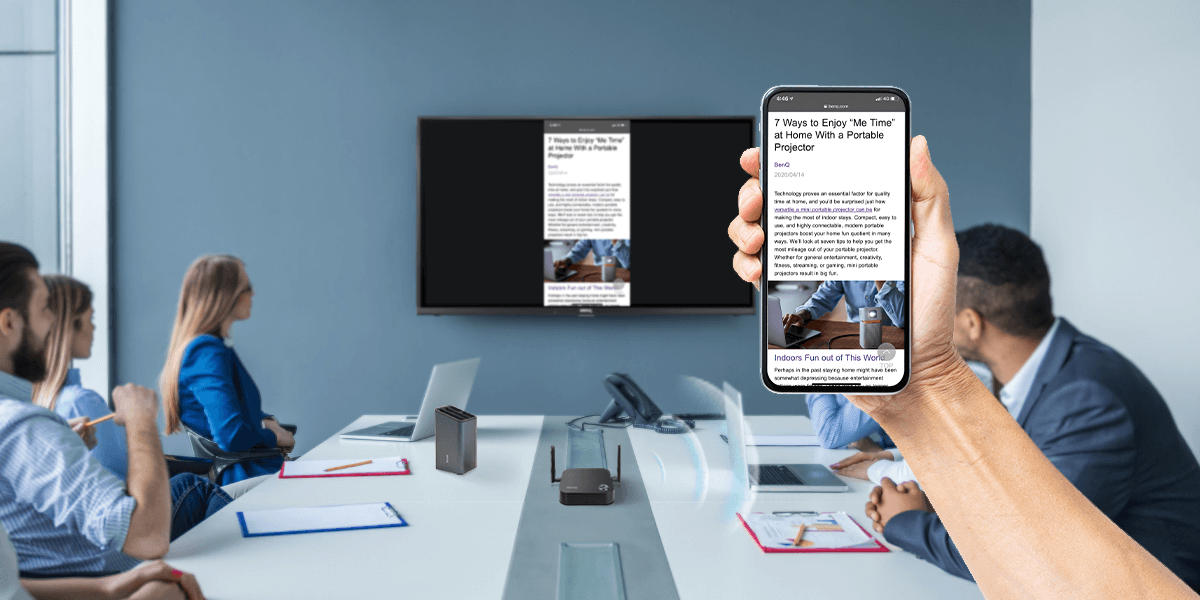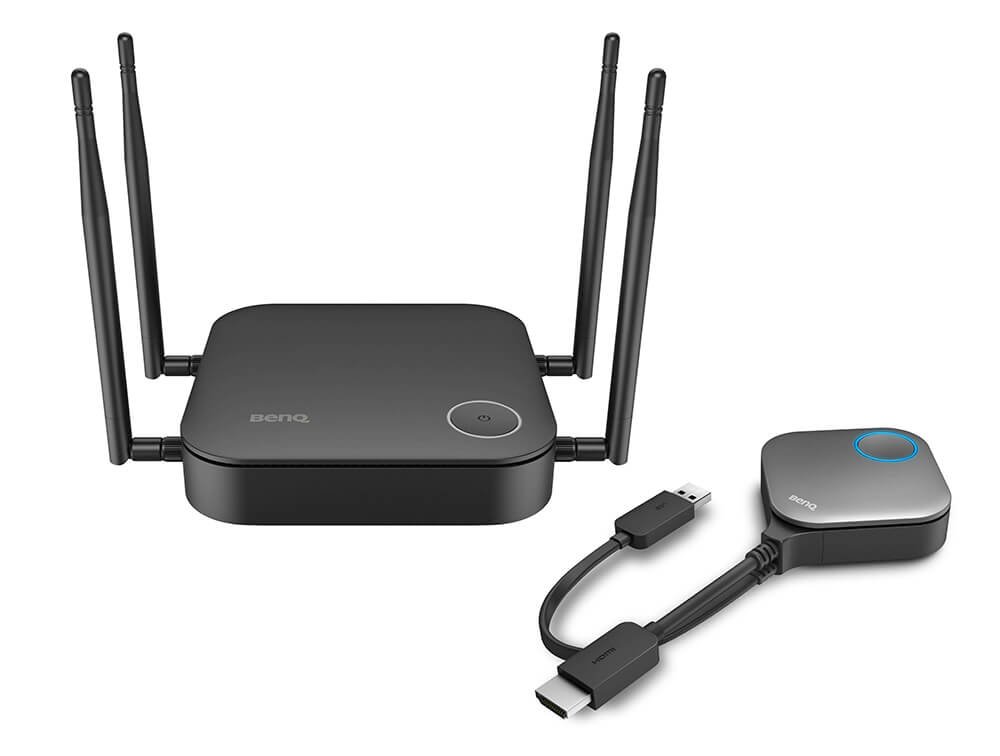How to Connect Your Phone to TV Wirelessly ?
- BenQ
- 2020-04-16
The modern smartphone you have in your pocket or purse has more power than a 1980’s mainframe, and a 4K television has over 8.3 million pixels for you to share your presentations or photos right from the phone. If you are working from home or have huddle spaces in your facility, you should to take a closer look at how to connect phones wirelessly to your TV quickly and easily.
There are three ways you can wirelessly connect your phone to TV :

The Solution
If you are looking to only do wireless screen mirroring of content occasionally, and have a Google Chromecast or Apple TV setup to stream content, either of these devices can be used to connect to your phone. These systems use either Miracast or Airplay that is already on your phone. These are best if you are occasionally share photos, as compared to a Powerpoint or video file, where your audience will be more sensitive to delays and lower quality.
The second option is to use a proprietary app that runs on your phone to stream the content over your wireless network. This was one of the early ways that businesses started using phones wirelessly connect to a TV, and is especially popular for interactive displays in classrooms. For huddle spaces and home offices, this approach can have drawbacks.
First, the receivers use up your network bandwidth to stream video – which can slow speeds down for everyone else. Also, most of these systems have specific network configuration requirements on what ports to open, how much bandwidth you have to have, and may require special features such as multicast to be configured.
More importantly, if you have a visitor who wants to share content from their BYOD device, they will have to download the app – and gain access to your network. This is a security risk IT managers try to avoid, as once a hacker gains access to your network, a lot of damage can be done in a short time. Some of these systems have also had security flaws that allow hackers to use the receiver to break into your network – and potentially shut it down.
Recommended Product
Fast, Easy & Worry-Free Wireless Presentation System BenQ InstaShow S WDC20

- Compatible with multiple devices
- Enterprise-level encryption with AES-128 bit
If you are in an environment where you have visitors wanting to use your display or want an extra layer of protection for your network – and the content being shared, consider a wireless presentation system. These are designed to enable all kinds of devices to share your TV – especially phones.
The advantage these systems have for wireless screen mirroring over proprietary apps is that they enable you to share content faster and more effectively– without a lot of fuss. For these devices, it doesn’t matter if you are sharing video, PowerPoint or KeyNote presentations, or showing an e-mail, the video and audio work as it does on your phone. For Android phones, you can even go into Desktop mode, where the phone sees your TV as a giant desktop monitor.
There are security advantages as well. The first is the ability to keep traffic – and visitors off your network. A system like the BenQ InstaShow S uses its private network to stream content – keeping the traffic – and potential hackers - off of your network switches. The second advantage is that they encrypt the content so it cannot be wirelessly viewed or recorded from the next room. This is especially important for home offices, where the wireless signal could be received by a hacker on the street.
But one of the best reasons for a wireless presentation is that enables you to truly collaborate with your phone and your TV. For example, with the BenQ InstaShow S, you can be sharing a PowerPoint – then pull out your phone and split the screen to share a photo or video clip from your phone. In just seconds. The system supports both Miracast and Airplay, so it doesn’t matter what phone you have, and also has an app for classroom use as well.
Bottom Line
Wirelessly mirroring your phone`s content to your TV is a very easy way to share content, and if you are using your system for entertainment and personal sharing, then look at using a Chromecast or Apple TV.
If you are using your TV as a working display for a home office or huddle space, then you will want to consider upgrading to the next level with a wireless presentation system to ensure your content and network stays secure – and eliminate the need for network configuration and proprietary apps.
The InstaShow S is designed for phones to wirelessly connect to a TV, as well as lots of other devices such as media players, notebooks, tablets, and digital cameras. It can be used with AirPlay and Miracast, where you can split the screen up into four different sections to share photos or other content from your phone. The unit has been certified for security and doesn’t require access to your network.
Sometimes it can be difficult to find answers to your questions when trying to find the right wireless screen mirroring system to connect to your TV. Since many resellers don’t have experts in this area that can help –where can you turn?
If you are looking for advice on choosing the right system for your business or classroom, you can talk directly to an experienced BenQ product expert who has access to many different models and can guide you to the best one for your application. We also can help you find a reseller nearby, or if you want, you can purchase one right on the phone. You can reach them at 888-818-5888. If you want to email them instead, you can reach them at BenqB2B.BQA@Benq.com.
Wireless screen mirroring systems are relatively new on the market, but you can find more detailed answers to your questions on the BenQ Wireless Presentation System page which has more detailed articles on common topics such as using Mac’s or AV devices with a screen mirroring system as well as comparison of popular models.